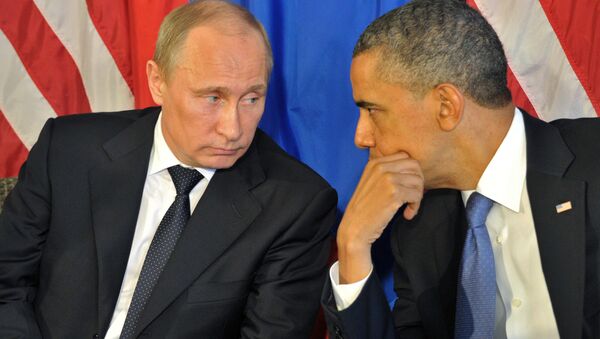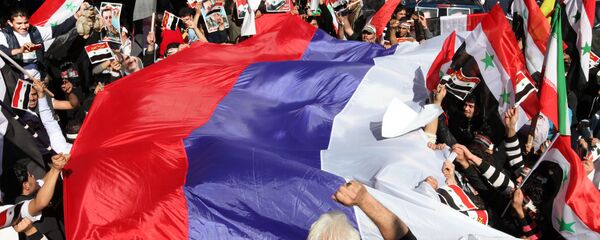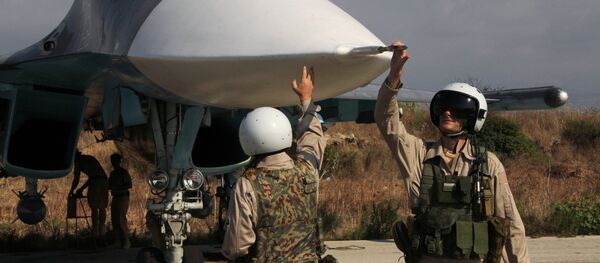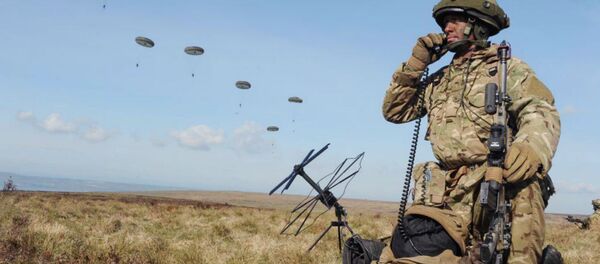Bismuth begins his piece by noting that the Russian president's various recent appearances at international forums, from the Syria discussion at the UN General Assembly in New York to the recent talks in Paris over the situation in Ukraine, are all connected to one coherent foreign policy line.
The columnist recalled that when the West "chose a collision course with Russia" over the situation in Ukraine last year, blaming Russia for the political crisis and the resultant civil war, the country was hit with "tough economic sanctions [and] suspended from the G-8," with Putin "viewed as a bad guy who needed to be isolated…But history shows that the Russians thrive at such moments. Just ask Napoleon."
Putin, Bismuth begrudgingly suggested, has "waited for his chance to strike back, and the ongoing strife in Syria provided him with it." In the journalist's view, "for the price of a one-way ticket to Syria, Putin purchased a new coalition with the Iranian, Iraqi and Syrian governments and the guise of a global anti-jihad fighter."
The journalist pointed out that "the effects of Russia's moves in Syria could already be seen in Paris over the weekend, where French-sponsored talks on Ukraine were being held. Putin appeared to be more tough, confident and demanding than in the past." According to Bismuth, Putin's confidence was connected to the fact that "the Ukrainian cards have been reshuffled" by "the recent developments in Syria."
In Bismuth's view, it has been Putin's decisiveness, especially on the Syrian issue, which separates him from his US counterpart. "The bottom line is that Putin knows what he wants, while US President Barack Obama does not. That is the difference," he noted. "Obama wants to timidly fight against Islamic State, while Putin is determined to fight to strongly keep the Assad regime in power. That is the difference," he added.
"Putin," according to the journalist, "knows exactly where he is going. He wants to show the world that he is a man of action, while his adversary Obama is just a man of words. This is working for Putin, because Obama is doing nothing to contradict him."
The reality which the journalist seems miss is that Washington has repeatedly vowed that it would not lift its anti-Russian sanctions so long as Crimea is part of Russia, and this, for Putin, is not up for negotiation. Nonetheless, the idea that Russia has seen political dividends from its operation to support the Syrian government, throughout the Middle East and elsewhere in the world, is a reality which Bismuth recognizes.
The journalist's next point, that Putin "does not care" about potential civilian casualties in Syria is even more off-base, as is the suggestion that the US president, who has been known to launch more drone strikes than any of his predecessors, "is scared of harming civilians."
Leaving aside Bismuth's clichéd view of the Russian military approach, his core point: that the Russian leadership seems to know exactly what it wants, in contrast to its US counterparts, is definitely something noteworthy, especially given the source.





